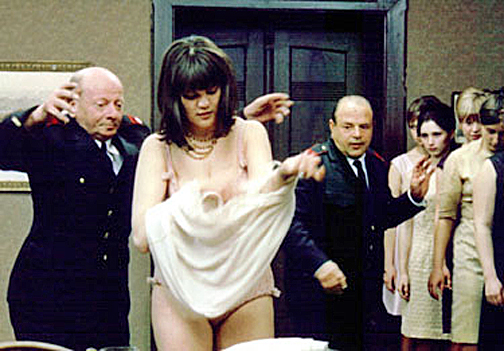The firemen decide to have a ball. There’ll be a drawing for prizes, a lot to eat and drink, a beauty contest and a ceremony to honor the old retired chief. Everyone in town will come. The old chief should really have been honored last year, but the firemen didn’t get around to it. They meant to, but something came up and they didn’t. Now the old chief is dying, as everybody knows, and so it’s obvious he will have to be honored this year or not at all.
Most likely he will suspect something. He may feel he’s being honored only because everyone knows he’s dying. Perhaps under the circumstances, the old chief would rather not be honored this year. But the old chief is not the only person to think about. It would be a terrible thing not to honor him at all. Not that he would care — but could the firemen look each other in the eye? So the old chief will be honored, even though it would be kinder to forget about it.
It’s like that so often. We start out with the best of intentions, but we foul things up. And then we don’t know whether to laugh or cry. And that is exactly the case with Milos Forman’s “The Firemen’s Ball,” a small, warm jewel of a movie from Czechoslovakia.
Just about everything goes wrong at the firemen’s ball, of course. People walk off with the raffle prizes, the young men drink too much, and the beauty contest is a shambles. A committee is appointed to choose the finalists from among the girls at the dance. There are a lot of pretty girls there, but the committee botches the job. Proud mothers force their daughters on the judges, while the pretty girls all have mothers who won’t hear of a beauty contest. One fat girl gets selected by accident. An ugly girl is selected by misunderstanding.
When the judges look at the pathetic lineup of finalists, they hold their heads in their hands. What’s worse, they have no idea how to run the contest. They’d like to see the girls in bathing suits, of course — but it’s the middle of the winter. Any way you look at it, the local beauty contest is no match for the glamorous Miss Universe photographs the judges study for inspiration.
Forman (who also made the memorable “Loves of a Blonde”) develops his material with loving care. He never laughs at his characters; instead, he sees them as victims of human nature. It’s too bad that all the raffle prizes — even the glazed ham — are stolen. But if some of the prizes are already missing, isn’t it only fair to steal one yourself since you bought a ticket? When the fire chief orders the lights be turned out so the prizes can be returned, isn’t it only natural his wife will be caught with a prize in her hands when the lights go back on? Who is to throw the first stone?
This is a very warm, funny movie, and perhaps the best way you could spend an evening in a theater just now. It is a relief to find a director who doesn’t force his material, who trusts us to understand what’s funny without being told.
Some say “The Firemen’s Ball” is an allegory of Czechoslovakia in the years before the Dubcek reforms — and also the years after, as things turned out. Perhaps it is. But Forman is never obvious about it.
And even if it’s allegory, there’s also something immediate and human about the advice the firemen give an old man whose house burns down. They arrive too late to save the house — they were at the dance — and now the old man is out in the snow and he’s cold. Thoughtfully, they suggest he move his chair closer to the fire.



















